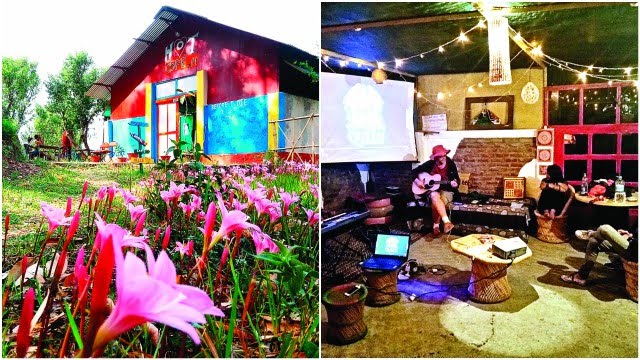

From opting for the tried-and-tested destinations to exploring far-flung and offbeat places, the Indian traveller has come a long way. And that’s also reflecting in the way we stay these days. While luxury hotels will never go out of business, the increasing demand for hostels among the backpacker community has led to a number of individuals setting up these accommodation options for those who want to see new places, and are also open to interacting with fellow travellers. Zostel, in a way, kicked off this trend that is gathering momentum now.
Contents
Not just a tourist
Most travellers these days aren’t satisfied with just going to a place, clicking a few pictures, and sampling the local cuisine anymore. They want a more wholesome experience, which includes exploring places that others haven’t been to, and interacting people from various walks of life. Uday Jhamb, CEO & Founder, Roadhouse Hostels says,
“Millennials are travelling and we are giving them a cooler option where they are doing more than just sitting in their rooms and watching TV. Here, they can chill with people from all around the world and experience the surroundings in a different manner. People expect more of an experience than luxury. I know people who can afford a more luxurious place but prefer to stay in my hostel because of the experience.” Uday’s Roadhouse Hostels, has expanded to five hostels, including those in Jaipur, Varanasi, Anjuna, Arambol and Palolem.
An offbeat experience
Many hostels are doing their bit to stand out. Heart Of Travellers (HOTs) hostel in Patwa Dunga region in Uttarakhand is India’s first-ever hiking hostel. Travellers can stay here for a price as low as Rs 399 a night. Harshit Kandpal, Founder, HOT Hostels and Homestays Pvt Ltd, who has worked with the Oberoi Group, is the brain behind the project. He says, “We’re the first hiking hostel. One has to hike down for one kilometer to reach our hostel. People were skeptical about the feasibility of my idea. We opened on March 25, and in the first month, we had a booking of 120 people. Word-of-mouth and social media coverage got us noticed further. Currently, we are booked for the next three months.” Another major attraction of Harshit’s enterprise is that people get to stay in a British-era home. He says, “This is a 160-year-old building. We have just refurbished it a bit, but we have let most things stay the way they were, like the chimney that’s as old. Apart from the bunk beds, we also have a section that is a beautiful suite for people who want to stay with us, but want more privacy.”
Budget baatein
Besides the fact that they offer a great experience, it’s also easy on the pocket. A hostel stay can cost you about Rs 350 to 400, which works well for those who want to take on a longer trip. Uday says, “Aligned to our brand lineage of a bohemian living, our hostels offer four key aspects that support in creating memorable experiences for backpackers, namely — location, pricing, quality of rooms, and the atmosphere of community living.”
Improving and Improvising
Uday feels that while hostels is a booming sector, there has to be a firm grip on the quality of services offered. “It has to be regulated or the time won’t be too far when people will start calling hostels dharamshalas. If you look at it, it’s the same culture. We have to ensure that the standards are maintained. Security and comfort have to be taken care of. We are very strict about these things. And we are giving all of this at the price of Rs 350,” he says. Harshit adds, “We ensure that people get the best of services. At Rs 399, we give them service worth Rs 5,000. Sometimes people are not from the hospitality business and that shows in the way they function. I have worked with Oberoi Hotels, and my team members are hoteliers, that really helps.”
In sync with local businesses
What is likely to work in the favour of hostels is that they can provide a boost to the local economy. Both, Uday and Harshit, say for a successful hostel venture, the local businesses have to benefit, too. “We use local produce, our staff is local. When we had set up our hostel, we had a meeting with youngsters, and we told them that they could take our guests out for hikes. We have trained them for it,” says Harshit. Uday adds, “I will not do a business where the locals don’t benefit, because then you can’t survive. At our hostel in Goa, we could have easily purchased a few bikes and rented them out, but I have another person to do it. Similarly, for services like laundry, we reach out to the local guys. We don’t pay or take commission for such things.”
It’s been a good start The backpacker community in India seems to have wholeheartedly accepted the hostel culture. “When we started out, I never thought that so many Indians would be staying with us. Today, there are more than 50 hostels in India. We are now planning to convert homestays into hostels. These will be at places that don’t have a huge influx of tourists already. So that people can explore newer destinations.” According to Uday, the major focus of hostels currently is in Goa and Rajasthan. “In Goa two years ago, there were about three hostels, today there are 20,” he points out.
Keep it small
Uday feels that it would be wiser to not compete with hostels in European countries. He says, “As compared to hostels in India, European hostels have 700 or 1,000 beds. Most hostels here are are 60-100 bedders, which is easier to set up. Often September to March is considered to be the peak season, but right now my hostel at Anjuna is full. That’s the benefit of having a 30-50 bedder.”
Future fabulous
The travel sector is very upbeat about this trend and is hopeful to see it grow further. Uday says, “Research has shown that backpacking sector is highly resilient in India and it is set to grow even faster as more traditional travellers are attracted towards the backpacker style of travel. In India, in the next two to three years, the growth could easily be 300 per cent.”
[“Source-ndtv”]




